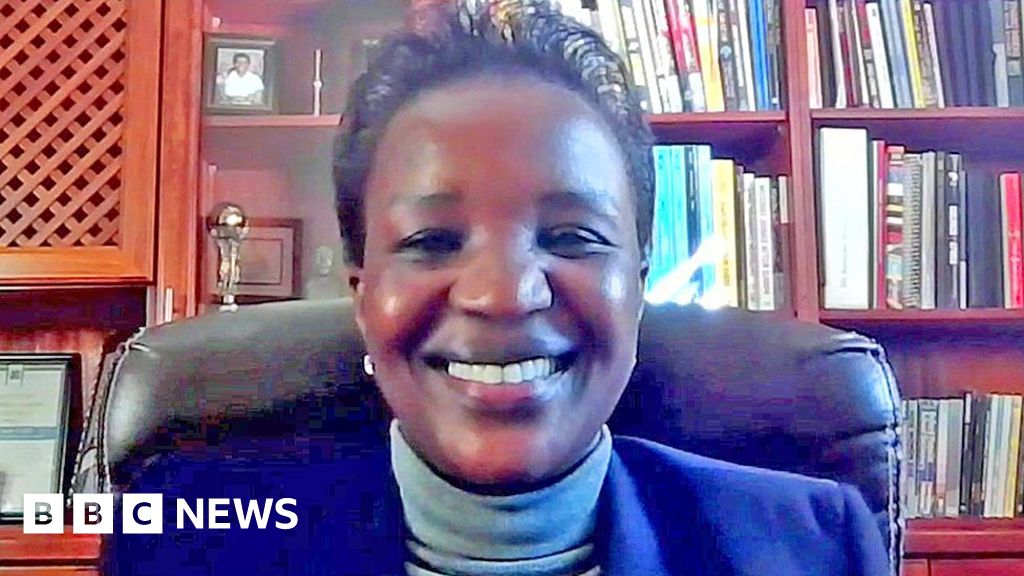A leading figure in South Africa’s second biggest political party has warned that a failure to fix the economy “might end up with violence that nobody wants”.
In the aftermath of the elections Dion George, who oversees economic policy for the Democratic Alliance (DA), has told the BBC that political parties need to “set aside our deeply entrenched ideological perspectives” to get the economy growing again.
The African National Congress (ANC), the party that ended white-minority rule in 1994, came first in last week’s polls, but did not win an outright majority and is trying to put together a government of national unity.
South Africa’s President, the ANC’s Cyril Ramaphosa, has said the concerns of citizens must be the priority.
“These issues include job creation and the growth of our economy that will be inclusive, the high cost of living, service delivery, crime and corruption,” he said recently.
Nearly eight million people are unemployed across the country, meaning the jobless rate is 32.9%.
It is one of the highest in the world and has been called a “ticking time bomb” in a UN report.
Amid ongoing power cuts that make it difficult for businesses to function, this week the statistics agency said the economy shrank in the first three months of this year – with manufacturing, mining and construction suffering in particular.
Last year South Africa’s economy grew just 0.6%.
“A whole lot of small businesses have actually shut down” because of widespread problems with energy supplies as well as the state run transport and water networks, says Busisiwe Mavuso, the chief executive of the influential lobby group Business Leadership South Africa.
Its members include local names such as the Bidvest conglomerate and Absa bank as well as international firms such as Amazon, Volkswagen and Nestle.
Ms Muvaso says the “trading environment is not conducive” and that her members’ “plea is for the government to really fix the basics”.
The central bank says foreign investment fell by a third last year, given the difficulties of trading in a country that the International Monetary Fund (IMF) forecasts will nonetheless return to being Africa’s biggest by the end of this year.
French bank BNP Paribas and UK oil giant Shell are amongst the big, foreign names pulling out of South Africa.
In a recent aborted takeover bid for the mining firm Anglo-American, Australia’s BHP made it clear it did not want the company’s South African assets.
Despite having a presence in South Africa for more than 120 years Shell says its exit is part of a broader review of its business.
The competition for investment is fierce and Ms Mavuso says “we’ve really made it difficult for capital to land here”.
“East Africa is eating South Africa’s breakfast,” she jests, while remaining hopeful that the size of the domestic market and the rule of law will ensure the return of investment once the economy is back in better shape.
This article was originally published by a www.bbc.com . Read the Original article here. .


